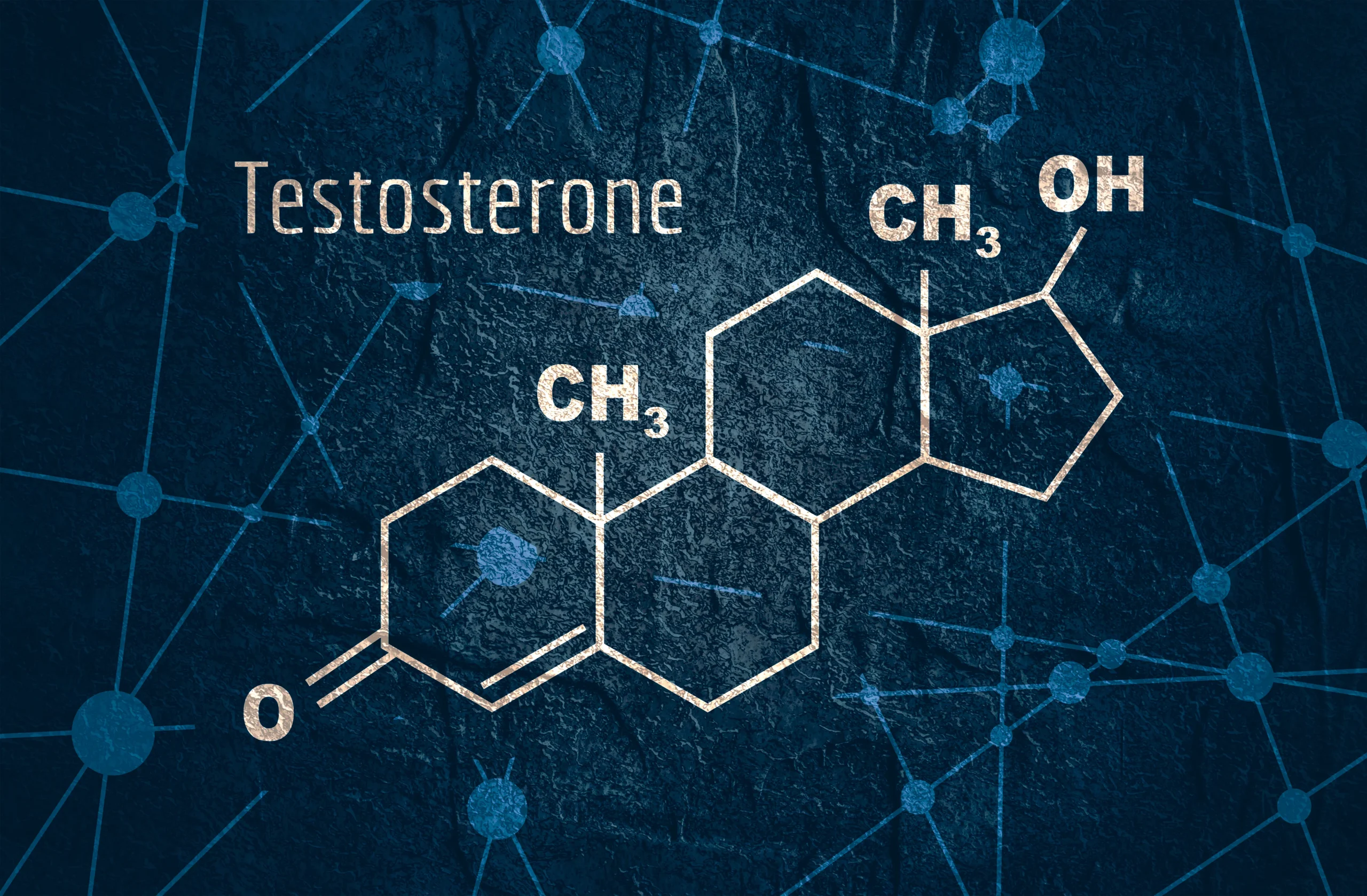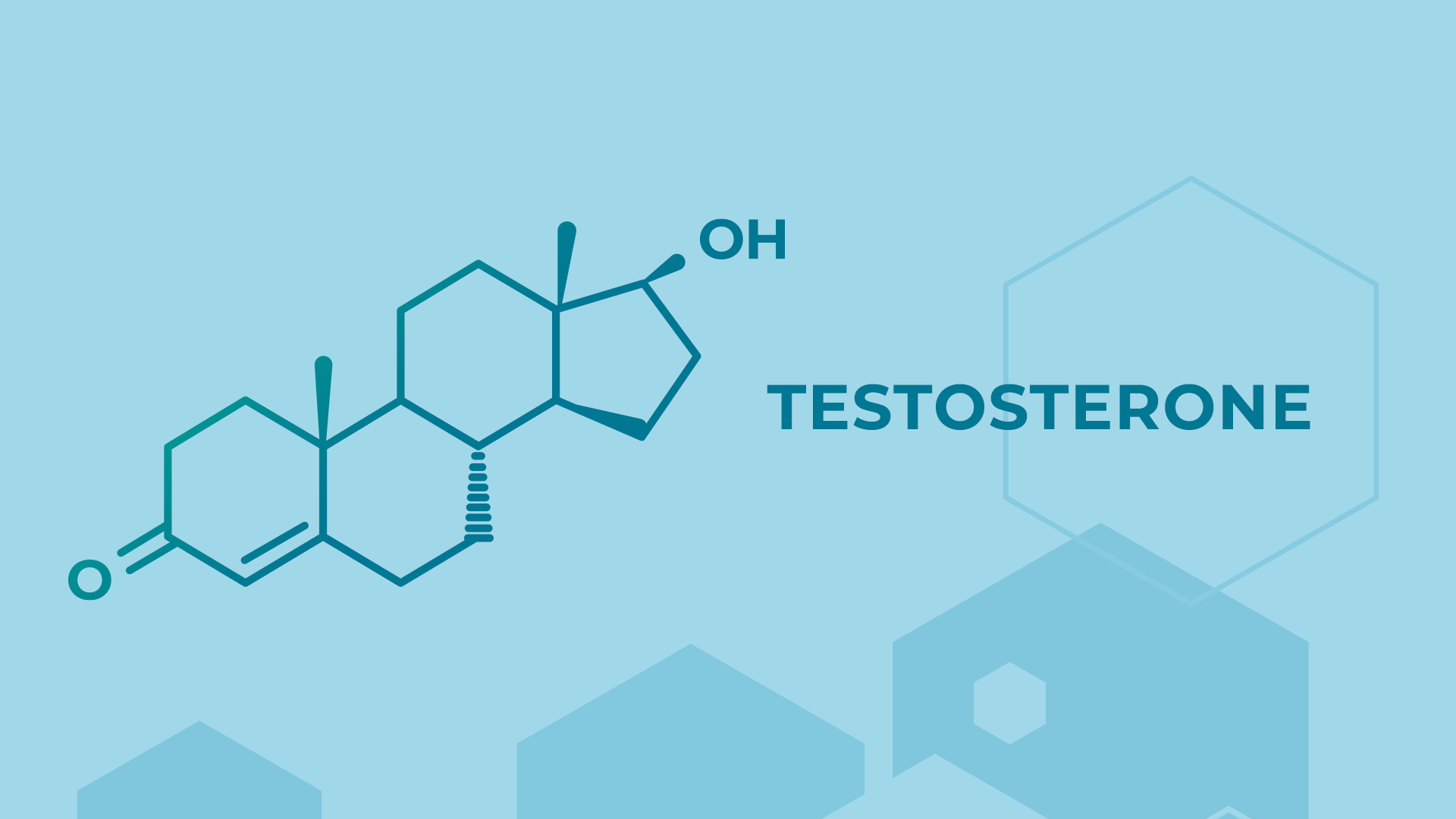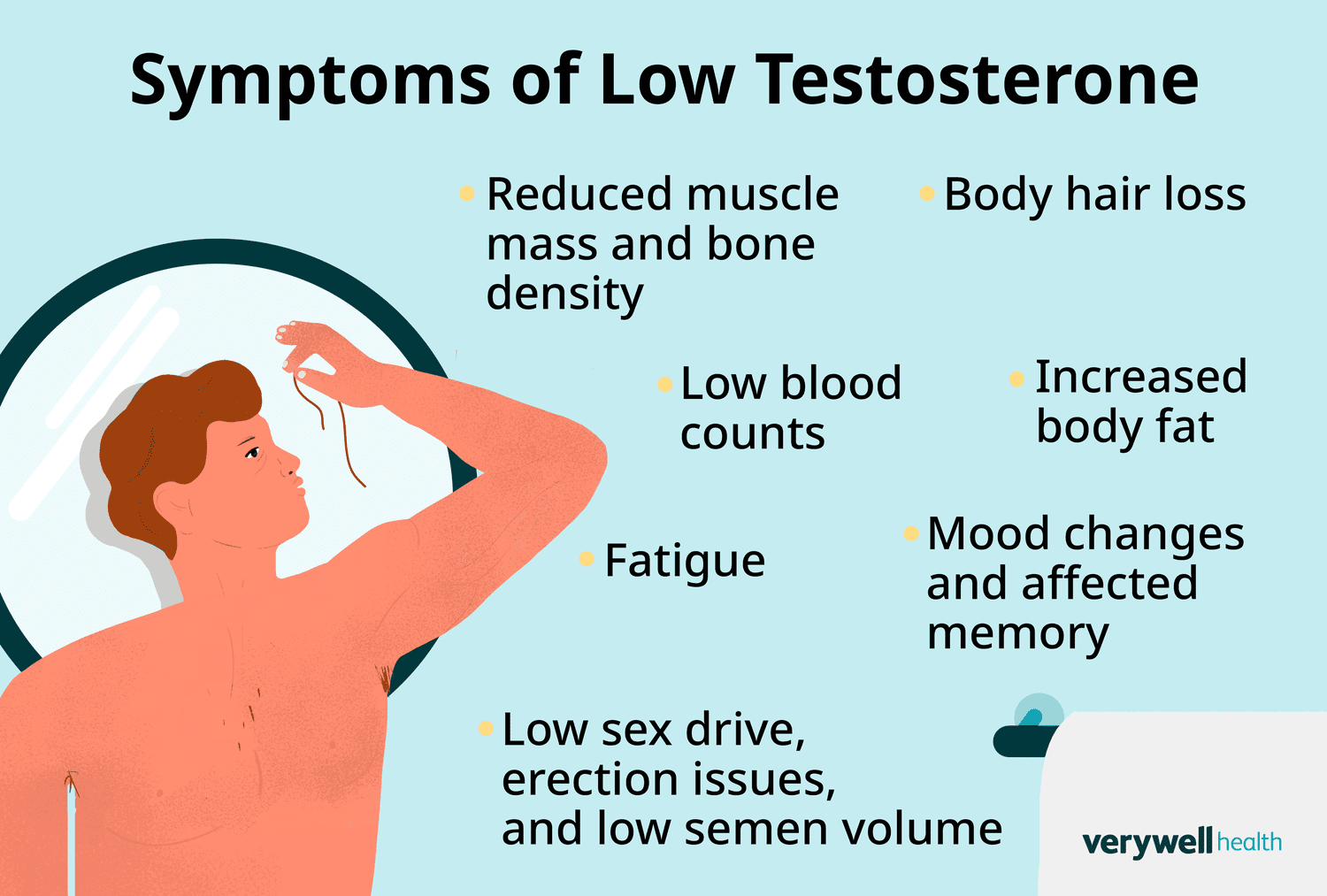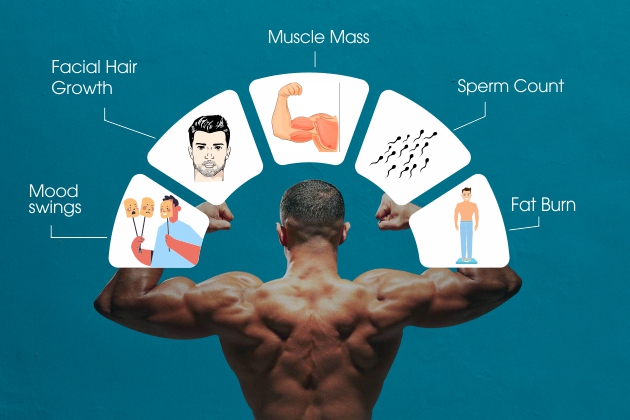
Key facts
- Testosterone is a hormone that regulates sex drive and bone strength, and helps make sperm.
- Testosterone levels vary greatly depending on your sex, age and health.
- Low testosterone levels can be due to a problem with your testes or pituitary gland, obesity, some health conditions or the normal process of ageing.
- If your testosterone levels are low, you may notice changes in your sex drive, erections, mood, sleep, energy levels and muscle strength.
- You may need testosterone replacement therapy to increase your testosterone levels. Living a healthy lifestyle can also help.
What is testosterone?
Testosterone is a sex hormone that is important in the development of male reproductive tissues such as the penis, testes and prostate. Males and females both naturally produce testosterone, though males produce far more testosterone than females. In males, most testosterone is made by the testes. In females, testosterone is made by the ovaries and converted to female sex hormones.
Testosterone levels can vary greatly depending on your sex, age and health. In males, testosterone levels are usually highest at age 20. After this, levels gradually reduce. A pregnant woman will have more testosterone than a healthy, non-pregnant woman.
What does testosterone do?
Testosterone is important in the development of the male reproductive organs, such as the testicles and penis.
It is responsible for the changes during puberty in males, such as body hair, a deeper voice, stronger muscles and penis growth.
In adult males, testosterone carries out important body functions, such as:
- regulating sex drive, mood and bone and muscle strength
- making blood cells
- helping the testes make sperm
In females, testosterone is needed for bone and muscle strength and sex drive. Some of it is converted to a form of oestrogen.
Why are my testosterone levels low?
If you have low testosterone levels, it may mean that your body is unable to make enough testosterone. This could be because your testes are not working properly, or because the pituitary gland in your brain is not telling your testes to make testosterone.
Causes of low testosterone levels include:
- damage to your testicles — for example by an injury, undescended testes or an infection, such as mumps
- damage to your pituitary gland
- obesity
- genetic disorders, such as Klinefelter syndrome
- chronic health conditions, such as diabetes and haemochromatosis
- some medicines and cancer treatments
- the ageing process
Some people use the term ‘andropause’ or ‘male menopause’ to refer to the decline in testosterone with ageing. This term is misleading. It suggests that males don’t have enough testosterone as they get older, however there is no clear evidence that this is a problem in healthy people.
You may have a greater drop in your testosterone levels if you have long-term medical conditions or if you are overweight. If low testosterone is a problem for you, you may want to speak to your doctor about whether it is simply because you are getting older or if there is another cause.
What symptoms will I have if my testosterone is low?
Males with low testosterone levels can have many different symptoms. You might have:
- reduced libido
- problems getting and keeping erections
- changes in sleep patterns and poor sleep
- hot flushes
- lower energy levels
- low mood
- difficulty concentrating or remembering things
You may notice physical changes such as:
- increased body fat
- reduced muscle bulk and strength
- swollen or tender breasts
- less facial and body hair growth
You may also find out that you have infertility or decreased bone density.
Children with low testosterone levels might have a small penis or testes. They might have late puberty, they might not grow facial or body hair or their voice might not break.
Some females with low testosterone levels might have loss of libido.
How can I get my testosterone levels tested?
Your doctor can check your testosterone levels with a blood test. Testosterone levels can vary, so if you have a low level on one blood test, you should have a second test to confirm it.
It’s best to have the testosterone blood test early in the morning while you are fasting. This is when your testosterone levels are usually at their highest.
How can I treat low testosterone?
If you have low testosterone, you can take testosterone replacement therapy. This is given by injections, gels, creams or tablets.
If there is an underlying cause for your low testosterone, it should be treated. You may also need testosterone therapy.
It’s unclear whether testosterone therapy has any benefit for older males who have low testosterone but no testicular or pituitary problems. Getting diabetes or other health conditions under control, and losing weight can improve testosterone levels.
The risks and side effects of testosterone therapy include:
- acne or other skin reactions
- male pattern hair loss
- higher levels of red blood cells and prostate-specific antigen (PSA)
- reduced fertility in some people
You can also increase your testosterone levels by:
- getting regular exercise
- keeping stress to a minimum
- eating a healthy diet
- losing weight if you are overweight






